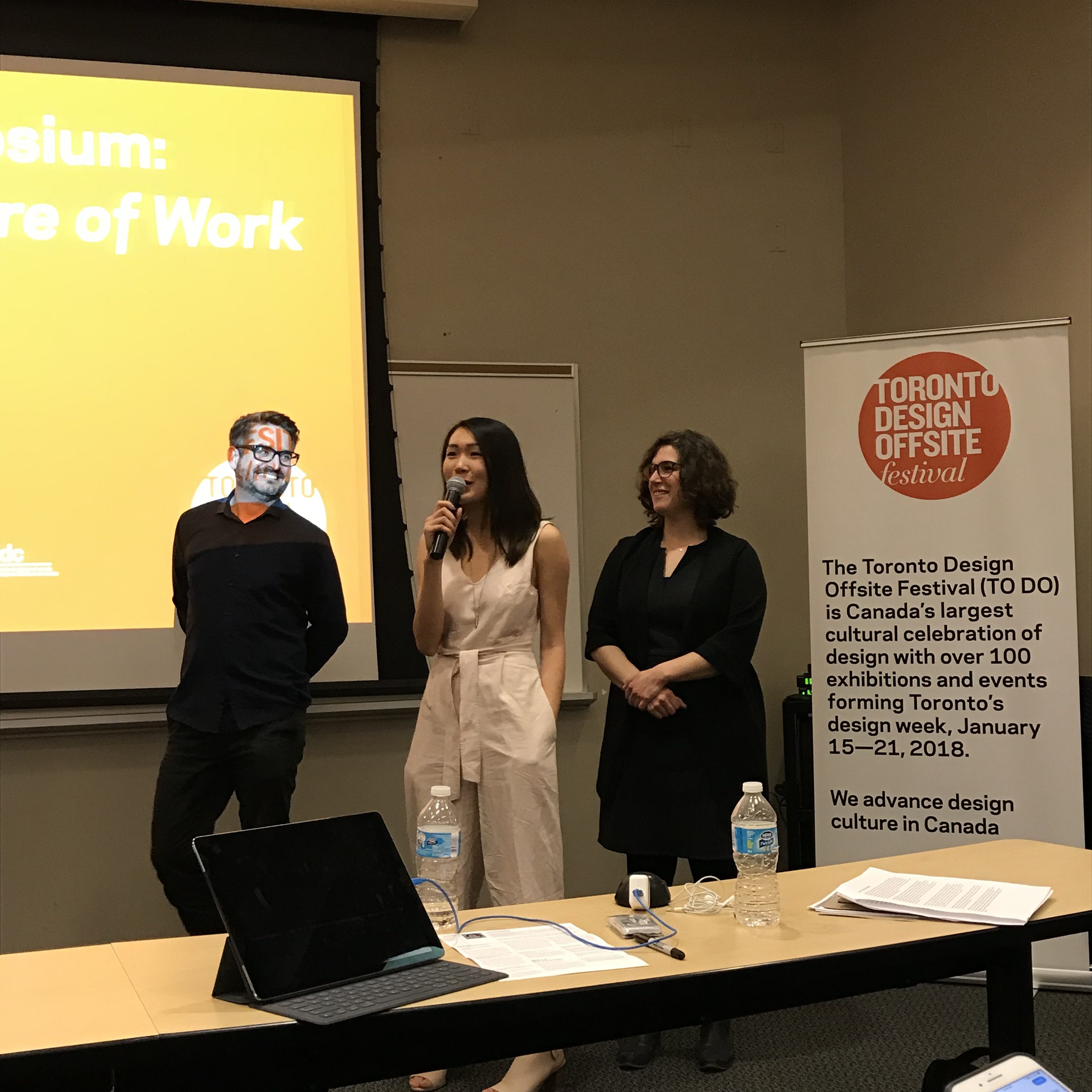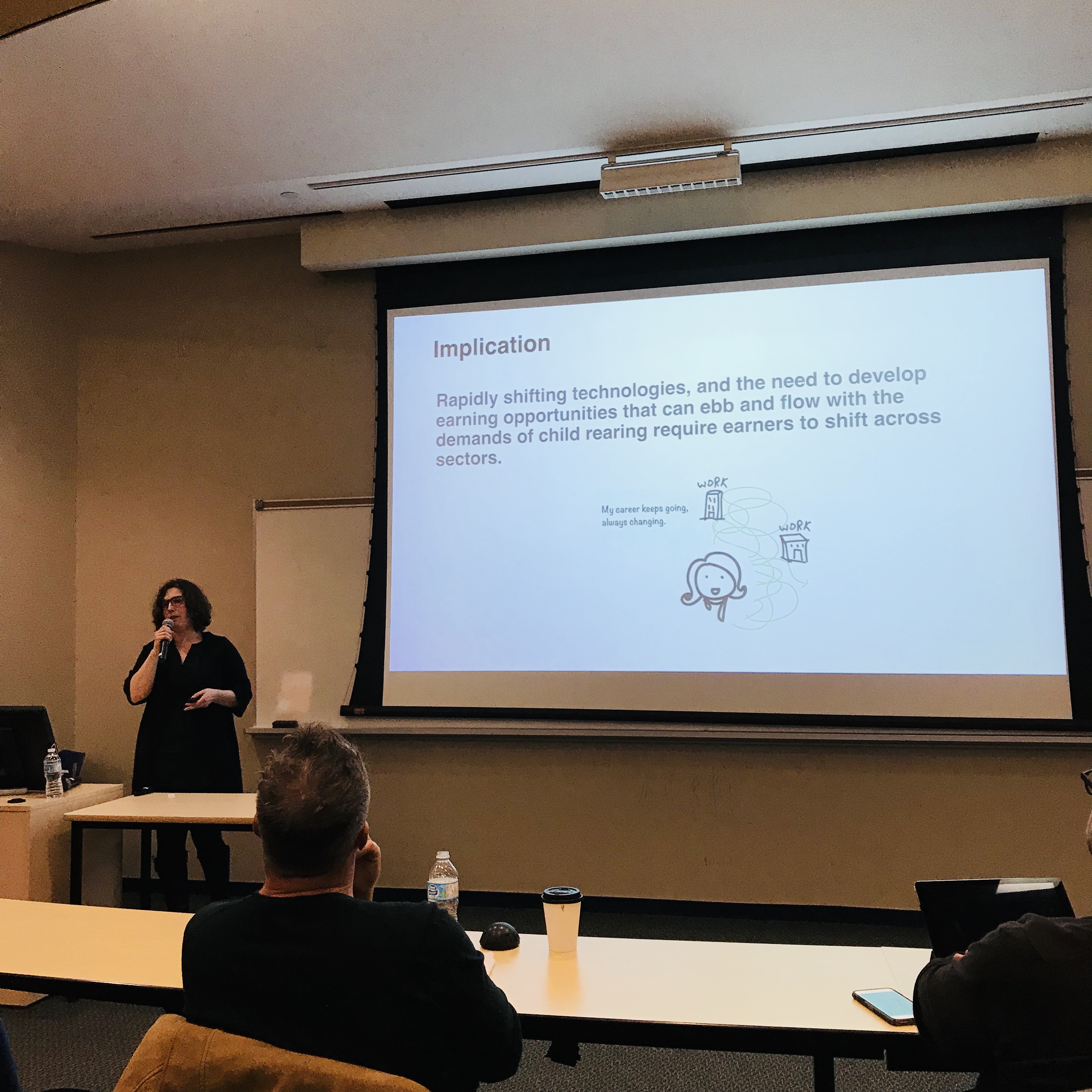When it comes down to it, work is only one element of a person’s daily life. How can we expand the concept and design a more inclusive Future of Work?
Typically conversations around the Future of Work evoke ideas about automation, robots, AI, the gig economy, holacracy, and a future world in which work may not even exist. The focus in these discussions simply tend to highlight which jobs will exist and which will disappear. However, little attention is drawn to how the people doing these jobs will be impacted in their daily lives, what might motivate their choices, or how they may choose to shape their future experiences.
When it comes down to it, work is only one element of a person’s daily life. We can’t simply be reduced to one single aspect – our work – when we consider what the future of work may contain. Instead, we must see a person’s life as a complex mixture of work, relationships, communities, families, and much more. These spheres of life interact on a daily basis and yet so often our discussions of work focus on the practicalities of the job. Unintentionally, we are forgetting the central truth that workers are more than just workers. They are parents, they are children, they are friends, and above all else, they are people with complex lives.
Thinking beyond work
While I was at OCAD University, I had the opportunity to apply skills learned through the Master’s of Design Program in Strategic Foresight and Innovation to any project of my choosing. While there are many deserving topics to be probed and studied, I was drawn to explore the Future of Work from a human-centered design perspective.
To me, the Future of Work is much more interesting when we realize that it is about much more than work. It includes the way people structure their lives around, and through, work to support various other dimensions that make us human: as parents, children, friends, caretakers, partners, and so much more.
During my project, I conducted interviews with parents who were also income earners, choosing to earn this income in unconventional ways. These parents made explicit choices to work in non-standard forms of employment like freelancing or work as independent contractors in order to create a new work-life fit that worked for them. I also interviewed experts in labour issues and in gender issues who looked at the shifts in the broader systems and policy perspectives to understand how the future could be designed, keeping trends and shifts like these in mind.
The findings from the project boil down to a simple truth: the Future of Work is about more than work – it’s about work-life fit, and making space for human-centered values in both work and home life.
The Future of Work is about more than work – it’s about work-life fit, and making space for human-centered values in both work and home life.
Past, present, future
If we’re to consider the future, let us not forget our past. The history of work, similarly, was not about work alone, but instead reflected the cultural norms of the time. For example, the ‘ideal adult worker’ was codified through the prevailing workplace organizational theory and further solidified through employment and labour laws that came to fruition during the 1960’s. Who is the “Ideal worker?” He (yes, predominately he) is an income earner without impingements from his life outside of work. This essentially describes the male breadwinner with a wife taking care of the children and home.
The system of work (its construction, policies, and labour laws) as it operates today, was designed to support the needs of the ‘ideal adult worker’. Why does this matter? It means we are still predominantly operating in a system that supports cultural norms of the 1960s that do not reflect the realities of today — or tomorrow.
Designing beyond The Future of Work
In January 2018, I spoke at the DesignTO Festival half-day conference as part of a panel of experts from around the world. The topic was centred around “Designing the Future of Work” and my aim was to challenge us to think more broadly about Work, in the Future.
Extending the frame beyond the nature of work itself enables the possibility to develop design principles and innovation opportunities to create a Future of Work that works for all of us – including the earners.
During my DesignTO talk, I spoke about earners in The Future of Work, and covered concepts such as:
- Why we should care about expanding the scope of “Future of Work” to include activities like home-care, parenting, and community participation
- What the current parenting/work framework is based on, and why it’s no longer working
- How working parents are changing their work to create more family/work fit and increase time with their children
- How we might learn from this emerging trend of parenting/work fit through non-standard employment to inform design opportunities for a Future of Work that works for all


Will you be part of the future?
If we’re to design an inclusive future that works for everyone, we need to re-define what it means to be part of the Future of Work. There are many challenges to take on in different forms. I’d love to hear what you’re working on or thinking about tackling — reach out on twitter @JKSommerfreund or email me Julie@themoment.is








